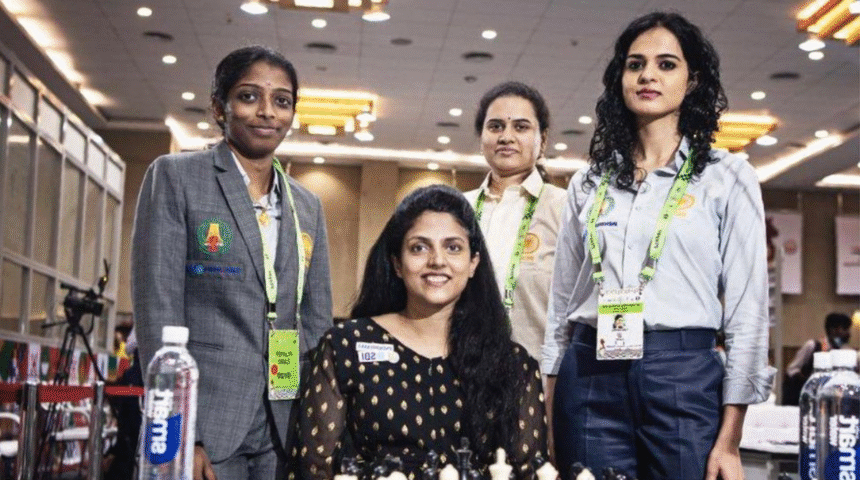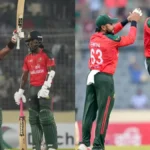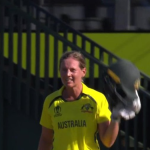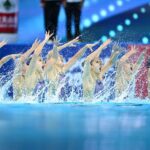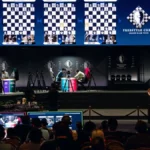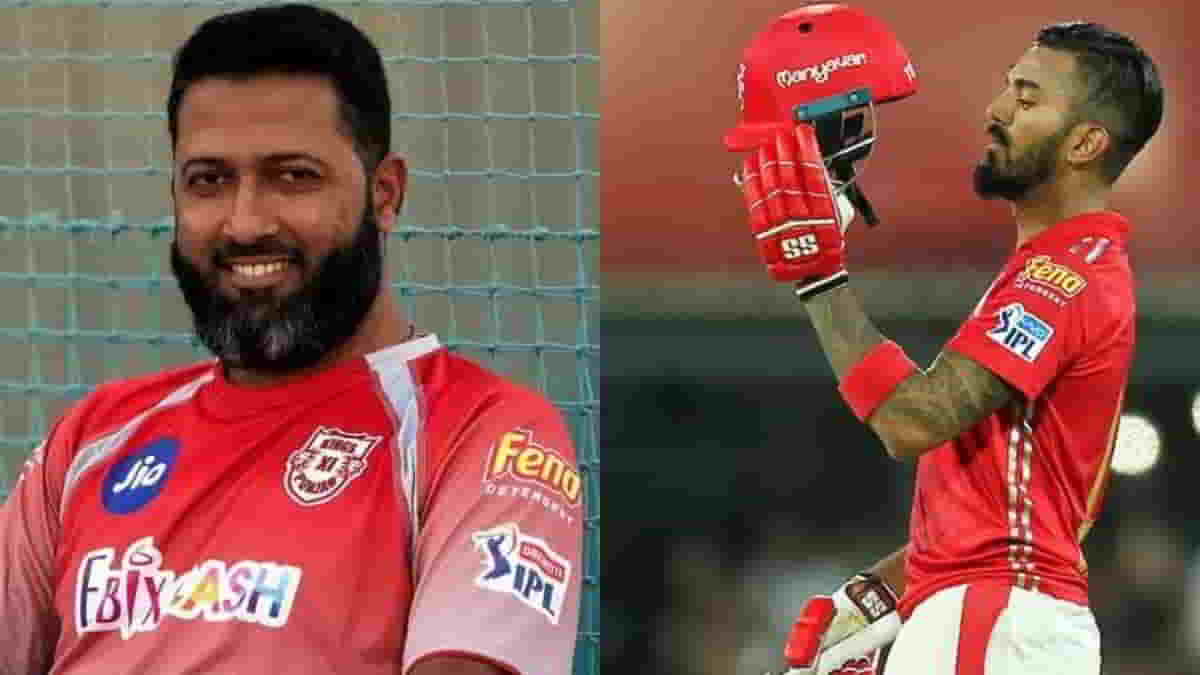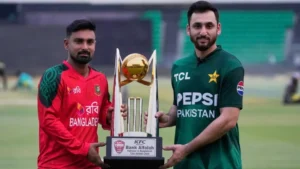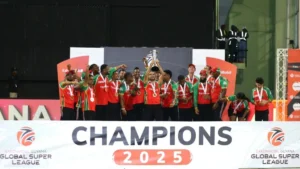In less than a half-day, the Indian women’s chess team went from a near-certainty of a gold medal to the disappointment of a bronze medal at the Chess Olympiad.
They still made history by becoming the first Indian women’s team to win an Olympic medal.
The Indians were far from being underdogs. The top seeds in the women’s section were Koneru Humpy, Harika Dronavalli, Tania Sachdev, R Vaishali, and Bhakti Kulkarni, a delightful mix of long-serving mould-breakers and young prodigies. It also helped that neither Russia nor China took part in the Olympics.
The Indians were within touching distance of gold for the majority of their campaign and were in sole possession of the lead heading into the final round, before an erroneous 1-3 loss to the United States. Tania and Bhakti messed up their lower board games, while Humpy and Vaishali drew. Tania, who had been unbeaten with eight points from ten games until the final round, struggled to accept an inexplicably bad last day. She was clearly devastated after losing to Carissa Yip of America.
“I think it’s really difficult right now to understand the seriousness of winning the first honours for the Olympiad,” Tania said shortly after, her eyes downcast and her emotions suppressed. “More than anything else, I believe it was because we were leading the tournament. We’re now dealing with the disappointment of losing gold rather than winning bronze.”
It must be a strange and perplexing sensation. A first-ever medal also serves as a reminder of a missed opportunity. India did not suffer defeats in their matches against the teams that finished ahead of them in the final standings, namely Ukraine and Georgia. It was one of the reasons gold seemed likely.
But, for a brief moment, even the bronze was in jeopardy. After the final round of games concluded on Tuesday, with Ukraine and Georgia taking gold and silver in the women’s section, respectively, India’s medal fortunes hung in the balance. It took some frantic tiebreak math to determine whether India or the United States received the bronze medal. Numbers favoured the Indians, and the Americans had to settle for fourth place.
Humpy and Harika, the Indian team’s two Grandmasters, were possibly the team’s top-rated players. Harika juggled her advanced pregnancy with the rigours of protracted classical games, completing seven draws in a row. She sat out the last two games but joined the rest of the team to answer press questions about their performance.
For years, most of these women have been quietly shattering stereotypes. Humpy broke Hungarian legend Judit Polgar’s record by becoming a Grandmaster at the age of 15 – she was the first Indian female GM. She had a difficult pregnancy but returned quickly after childbirth to become world rapid champion in 2019.
Harika has gone to great lengths to be there for her team, even travelling with her husband and mother in tow, despite her impending delivery.
Tania, an International Master, defies the stereotype of chess players as aloof and quiet. She’s outgoing, chatty, and in high demand for commentary roles and streaming appearances. She joined the growing breed of streamers who introduced chess to thousands of new fans as a result of the pandemic. She was also a tenacious fighter in this tournament, grinding out wins on the fly.
Among the mainstays was debutant Vaishali, the younger sister of teen star player Praggnanandhaa and the team’s youngest member. This Olympiad demonstrated that she is developing into a precious team member. She won alongside Humpy against third-seeds as well as former champions Georgia, giving India the sole lead after six rounds, at halfway.
Playing in her first Olympiad at home put her under immediate pressure. Local press paparazzi would swarm around her before each round, trying to capture every twitch. Her more popular sibling is used to this kind of attention, but for Vaishali, it was novel, if not uncomfortable. But she came through, earning an individual bronze medal for her efforts.
Bhakti, who is 30 and somewhere between a youngster and a veteran, played the first three rounds before being rested for the next six. After Harika ruled herself out, she was brought in for the final two rounds. She was part of the team that defeated Kazakhstan by a score of 3.5-0.5 in the semifinals but fell short in the pressure-cooker of the final round.
The previous best result for the Indian women’s team at an Olympiad was fourth place in Istanbul in 2012. It took another decade for them to win their first bronze medal.
However, in a sport with a significant gender gap, both in terms of participation and playing strength, this bronze medal could be a rallying cry for a new generation of female athletes.


